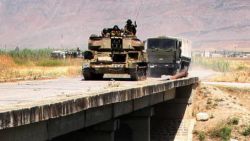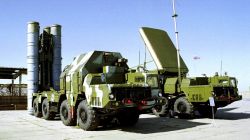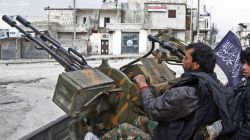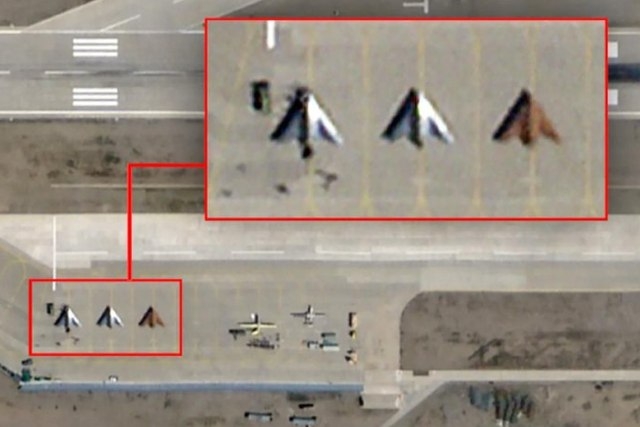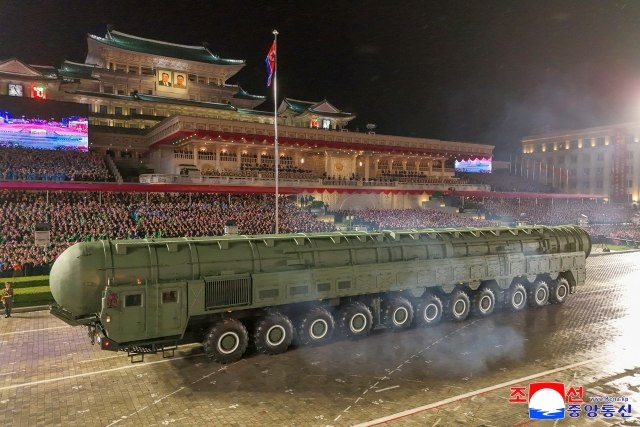Syrian Rebels Behind Chemical Attacks?
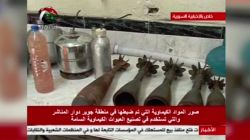
While the U.S. is gearing up to strike Syria over alleged chemical attack, multiple evidence suggests rebel forces are also in possession of chemical weapons.
According to SANA news agency, an army unit pushed into an area where soldiers were attacked and seized a warehouse containing material labeled 'Made in KSA' as well as a large number of protective masks. In addition, the army discovered a stockpile of chemical poisoning antidotes with 'The Qatari-German Company for Pharmaceutical Industries' label on them.
The rebels reportedly used chemical weapons to attack the Syrian troops in the Damascus suburb of Jobar.
Last week Washington Post reported that the fighters from a group that the Obama administration has branded a terrorist organization were among rebels who seized the Sheik Suleiman military base near Aleppo, where research on chemical weapons had been conducted. Rebels are also closing in on another base near Aleppo, known as Safirah, which has served as a major production center for such munitions.
Since the Syrian civil war broke out two years ago, the Syrian rebels have been supported by U.S. in various ways in order to arm them legally.
The Daily Beast reported on Sept. 1 that U.S. is gearing up to send more arms to the rebels, with the Free Syrian Army (FSA) likely to receive anti-armor and anti-aircraft weapons.
A U.S.-based organization was formed in the name of Syrian Support Group (SSG) in mid-2012 to support rebels across Syria with aid and not permitting to ship military equipment or hardware under an Office of Foreign Assets Control (OFAC) license. To date, SSG has transported over $10 million in U.S. Government aid to the Supreme Military Council of the FSA.
In November 2012, Rebels gained access to heavy weapons like rockets, mortars, cannons and two dozen armored personnel carriers and tanks of various vintage after raiding an artillery base near Mayadeen.
The rebel forces have used a variety of MANPADS including SA-7s and SA-16s, along with SA-24s and FN-6s (the first three hail from Russia and the last from China) to bring down helicopters.
The U.S. has appointed the Central Intelligence Agency (CIA), an effort to support the Syrian opposition with training in areas including weapons use, urban combat and many others. But the military options like creating a no-fly buffer or arming and training the rebels are expensive, at $500 million to $1 billion per month.
In May 2013, Menendez bill was passed, in the U.S. which includes $250 million to the opposition for "basic services over parts of the country," additional sanctions on arms and oil sales to the government in Damascus, and the authority to provide "arms, military training and non-lethal supplies" to vetted elements of Syria's armed opposition – but doesn’t provide man-portable air-defense systems (MANPADS).
The Guardian reported last week that the Syrian Rebels find supports in Saudi Arabia and Qatar and western countries like France and several hundred tonnes of ammunition and a limited supply of light weapons were allowed across the Turkish border in the past three days. Senior rebel commanders contacted by the Guardian say they did not include anti-aircraft missiles, but several dozen anti-tank rockets were among them.
The FSA’s General Salim Idriss was quoted by Irish Times on September 2 report that the U.S. decision to delay strike on Syrian Government for the recent chemical attack is an advantage to them in order to arm themselves better.
“We are now taking advantage of this delay to make better plans and have also issued a statement calling on officers of the Syrian regular army to defect and join our ranks,” Mohammed Almustafa, media co-ordinator for the FSA’s General Salim Idriss said to Irish Times.
The Turks and “some Arab countries” have been especially supportive, he added, without providing details. Various reports say, at present, Saudi Arabia has been buying variousanti-aircraft and anti-tank missiles on behalf of the rebels, with Qatar. France has also been gearing up with arms supply without mentioning the types of equipment involved.
Britain's government had sent earlier "a secret 20 million Euros arsenal of weapons to Syrian rebels, including rifles, machine guns and missiles", according to British Daily StarSunday.
Last week, The New York Times reported that, Sudan is also supplying arms to Rebels through Turkey with shipments of Sudanese- and Chinese-made missiles and newly manufactured small-arms cartridges.
Currently, FSA has received a consignment of rockets, machine guns and anti-tank weapons from “sisterly countries” (Turkey and some unnamed Arab Countries) in the past week.
FSA is also preparing to follow up with attacks on air defense systems, missile depots and airports. Saudi Arabia has taken over the leading role in arming and unifying the rebels -- qualitative weapons, such as anti-tank arms, according to Mustafa Alani, an analyst at Gulf Research Center.
